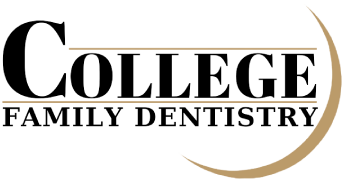Wisdom teeth, also known as third molars, are the last set of teeth to erupt in our mouths. They typically make their appearance during the late teens or early twenties. Most adults have four wisdom teeth - two on the top and two on the bottom - but it's not uncommon for some people to have fewer or even none at all.
These molars were once essential for our ancestors, who relied heavily on a diet of coarse foods like roots, nuts, and meat. However, with advancements in modern diets and dental care practices, wisdom teeth have become somewhat obsolete.
The trouble arises when there isn't enough space in the mouth for these extra molars to fully emerge or if they grow in at an angle. This can lead to a host of issues such as overcrowding, impaction (when a tooth gets trapped beneath gum tissue), infection, decay, and even damage to nearby teeth.
While not everyone will experience problems with their wisdom teeth, many dentists recommend removal as a preventive measure before any complications arise. It's important to consult with your dentist about whether you should consider removing your wisdom teeth based on your unique situation.
When do Wisdom Teeth Need to be Removed?
Wisdom teeth, also known as third molars, are the last set of teeth to emerge in our mouths. While some people have no issues with their wisdom teeth, and they grow properly aligned, for many others, these extra molars can cause a host of problems.
One common reason why wisdom teeth need to be removed is when there isn't enough space in the mouth for them to fully erupt. This can lead to impaction, where the teeth become trapped beneath the gums or jawbone. Impacted wisdom teeth can result in pain, swelling, infection, and even damage to surrounding teeth.
Another scenario that may necessitate wisdom tooth extraction is if they come in at an angle or grow sideways. This abnormal positioning can disrupt the alignment of other teeth and potentially lead to crowding or shifting of adjacent teeth.
Additionally, if there is not enough room for proper oral hygiene practices around these back molars due to their position or lack of accessibility, it becomes difficult to effectively clean them. Poor oral hygiene around wisdom teeth increases the risk of decay and gum disease.
In some cases, dentists may recommend preemptive removal even before any symptoms arise as a preventive measure against potential future complications associated with impacted or misaligned wisdom teeth.
It's important for individuals experiencing pain or discomfort near their back molars or suspecting issues with their wisdom teeth development to consult a dental professional who will assess their situation and determine whether removal is necessary.
The Wisdom Teeth Removal Procedure
Before the procedure begins, the dentist will administer anesthesia to ensure your comfort throughout the surgery. The type of anesthesia used may vary depending on factors such as your overall health and preference.
Once you are numb and relaxed, the dentist will make an incision in your gum tissue to access the impacted or partially erupted tooth. In some cases, it may be necessary to remove a portion of bone surrounding the tooth or divide it into smaller pieces for easier extraction.
After successfully removing the wisdom tooth, stitches may be needed to close up any incisions made during the procedure. These stitches are usually dissolvable and do not require removal.
Post-surgery care is essential for proper healing. Your dentist will provide instructions on how to manage pain, swelling, and bleeding after wisdom teeth removal. It's important to follow these guidelines closely for a smooth recovery process.
Conclusion
Addressing problematic wisdom teeth promptly can prevent future complications from arising. By consulting with dental professionals who specialize in removing these troublesome molars when necessary, you can maintain optimal oral health and avoid potentially severe consequences later on.
To find out more about the dental services we offer at College Family Dentistry, call (225) 926-4640 or schedule a consultation online. You can also visit us at 4616 Concord Avenue, Baton Rouge, LA 70808.

